- Officially banned in 1912, footbinding was a practice that permanently deformed the feet of tens of millions of young Chinese girls. Women with small feet were considered more beautiful.
- Only a few are still alive today, mainly in Yunnan province, one of the last places in China where this practice was banned.
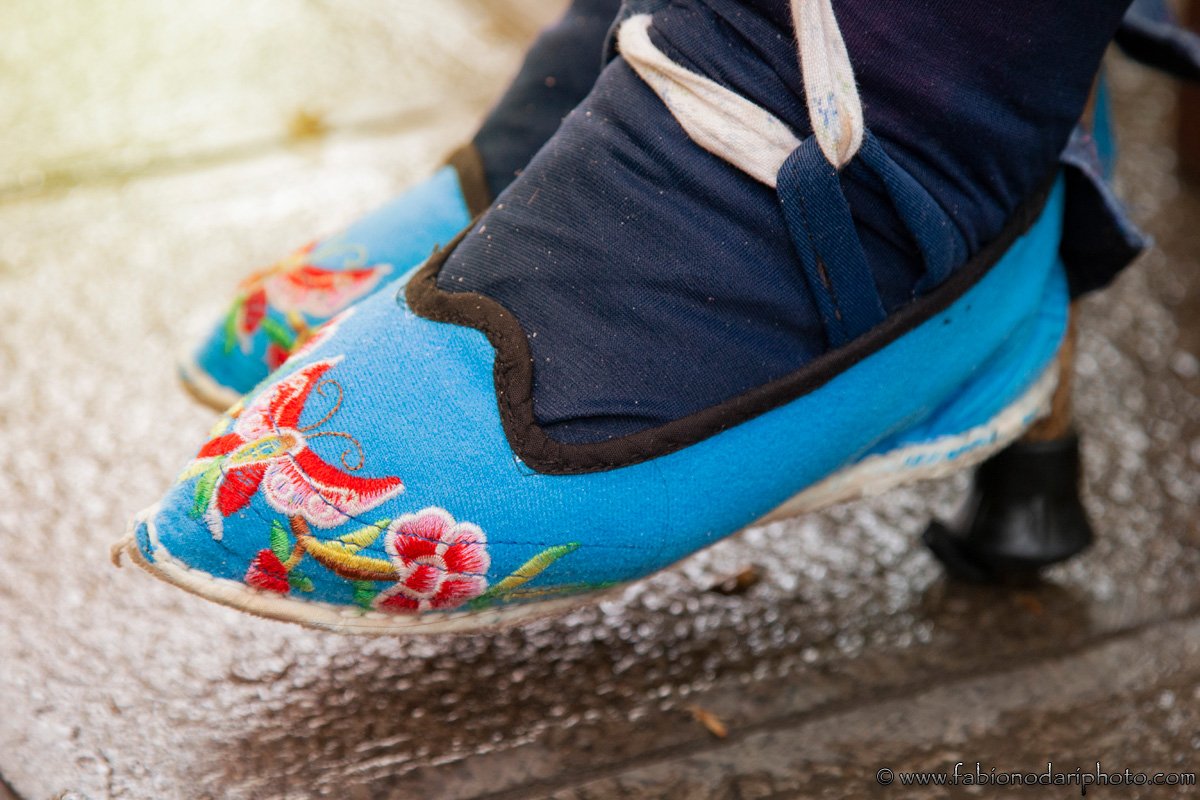
Footbinding is said to have been inspired by a tenth-century court dancer, Yao Niang, who once bound her feet into the shape of a new moon. Other dancers and then upper-class women, eager to imitate Yao’s legendary gracefulness, started to copy her, and eventually, footbinding became a status symbol among the women of the Chinese elite.
Historians suggest that by the 19th century, as much as 40% of all Chinese women had bound feet, which became universal amongst the upper classes.
The smaller the foot, the more valuable the bride, and the higher the chances of social advancement. The feet of the most desirable brides were expected to be less than 3 Chinese inches (11cm) long, a standard known as the “golden lotus.” “Silver lotus” – feet between three and four inches long, was acceptable, but anything over 5 inches was dismissed as an “iron lotus.” Marriage prospects for an iron lotus were limited.
Golden Lotus
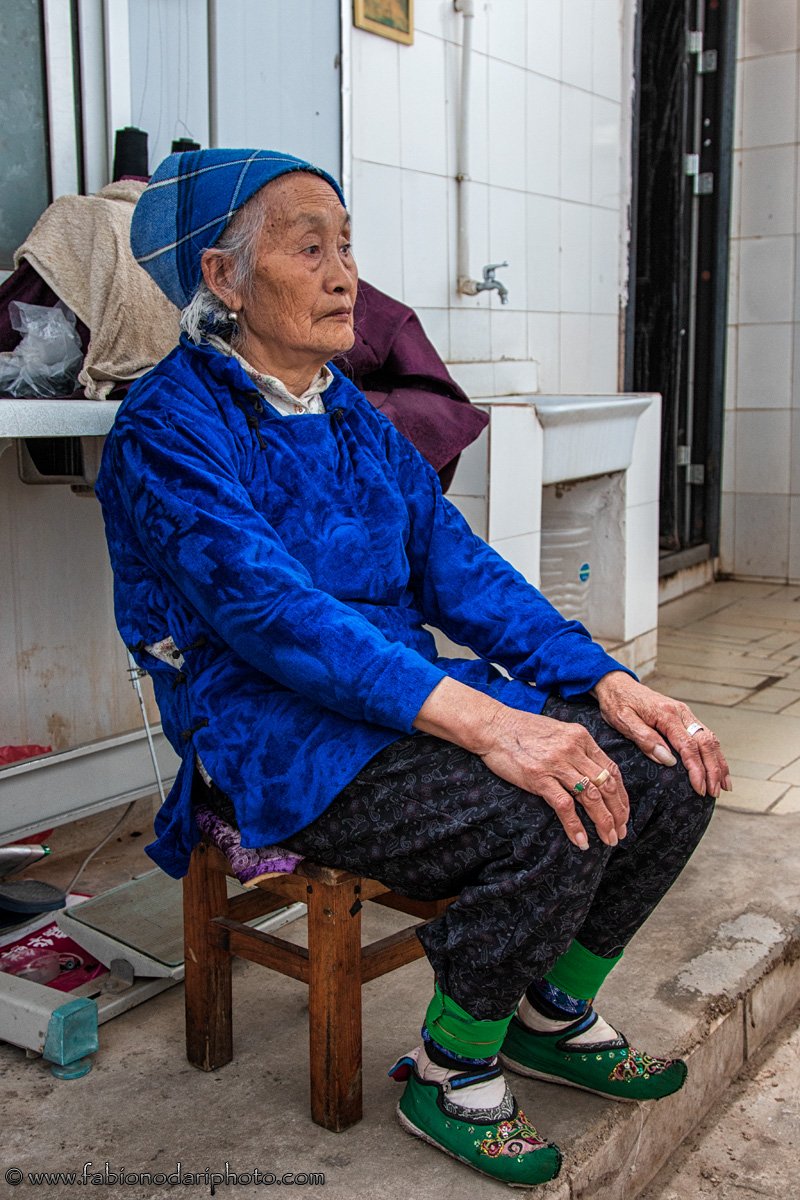
“I don’t have any money to give you; I’m sorry”, repeats Xiu Ying*. I try to explain that she doesn’t have to give us money for the photos I am about to take and apologize for intruding.
“Wo mafan ni” – “I’m causing too much trouble to you”, replies Xiu in Yunnanese dialect, as she walks inside the one-room apartment she shares with her daughter in Kunming, Yunnan’s capital.
As we wait outside while she changes her shoes, I can see from the small window that the apartment doesn’t have many amenities. Only a bunk bed and a small table is pretty much it.
Xiu Ying was born in 1942 near Quxing, traditionally a very poor part of Yunnan and now the centre of government poverty alleviation programs.
*Names have been changed
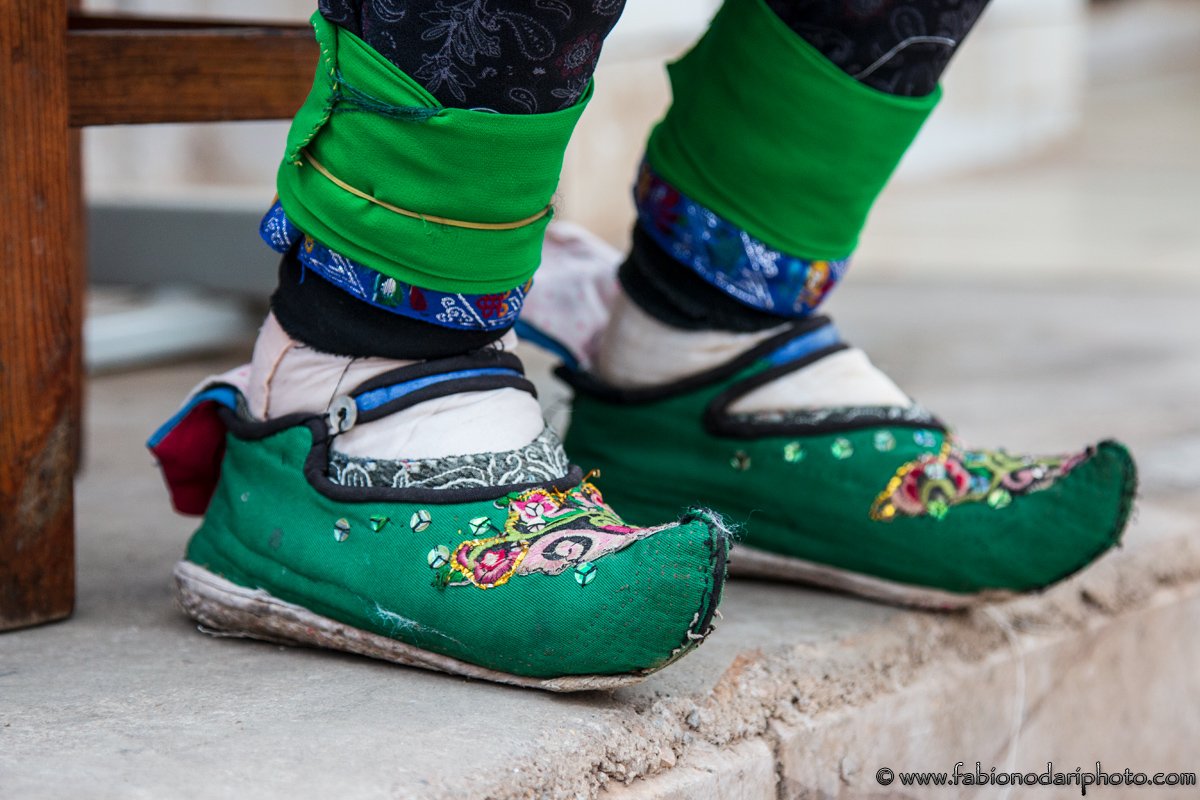
“My daughter brought me to Kunming, but I want to return to Quxing. It’s been 10 years since she moved me here,” Xiu Ying says.
The daughter works as an attendant in a private parking lot far on the outskirts of Kunming.
There are many questions I want to ask Xiu: “Do you remember when they started binding your feet? How painful was it? Were you ever upset with your parents for doing it to you?” but she seems very nervous talking to a foreigner and says almost nothing.
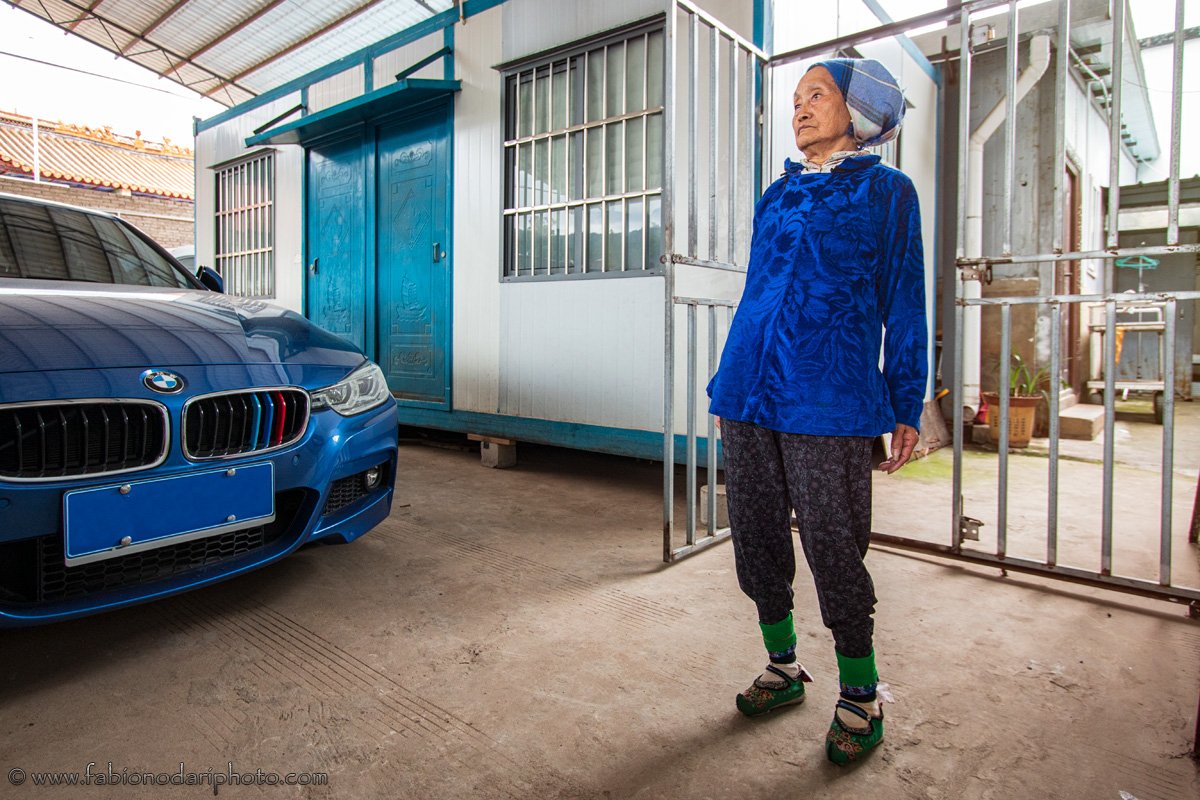
But when the pictures are taken, and we are about to leave the dilapidated apartment, she suddenly breaks the silence: “Look at what they did to me when I was 4 years old. I can barely walk, and I can’t even stand up straight.”
Iron Lotus
“I’m ugly and old; I don’t want to be photographed”, Ying Yue keeps repeating as she slowly stands up from the tiny and uncomfortable wooden stall where she spends more of her days, not far from the centre of Kunming.
I am honestly a bit embarrassed, and I don’t know what is culturally appropriate in a situation like this, but her daughter reassures me that her mom “is just a bit grumpy today” and “she is happy to talk to someone.”
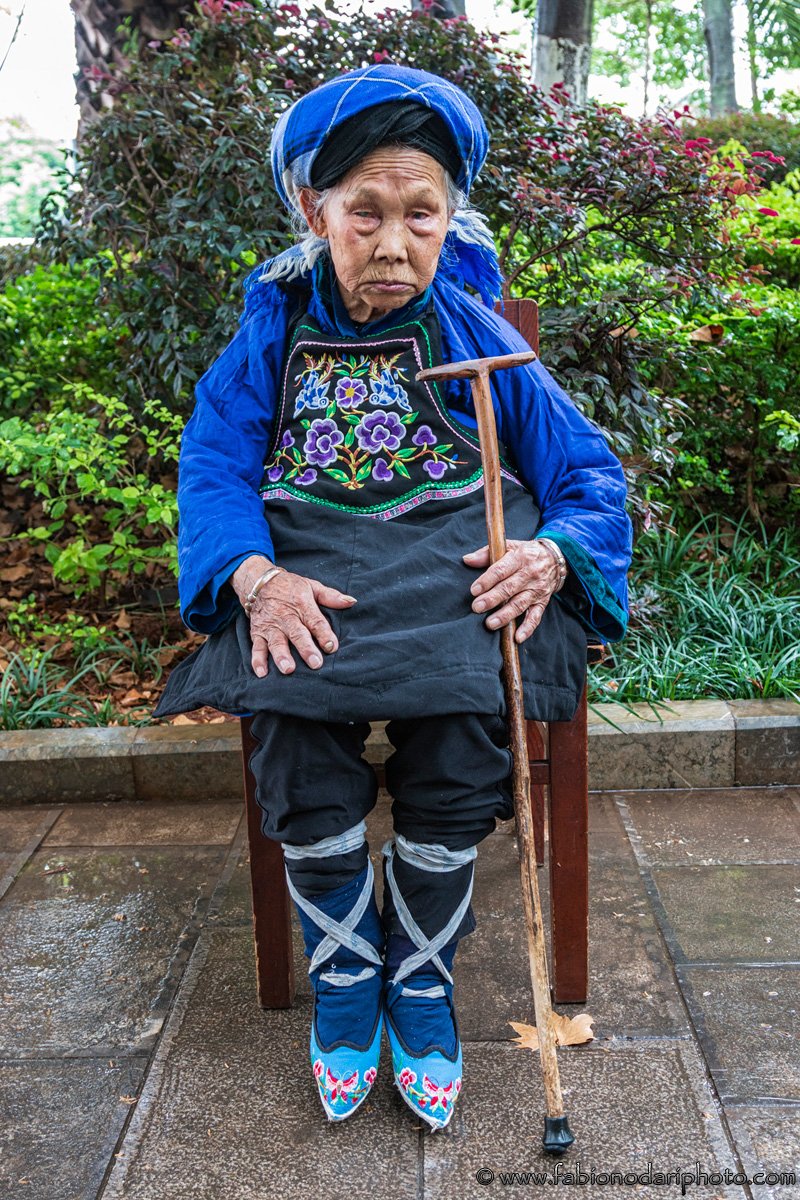
As we walked outside, her daughter explained that Ying Yue was 3 years old when her parents started binding her feet. Having small feet was fundamental for a girl to get married and have children. Little did Ying Yue know that in a few years, everything would have changed.
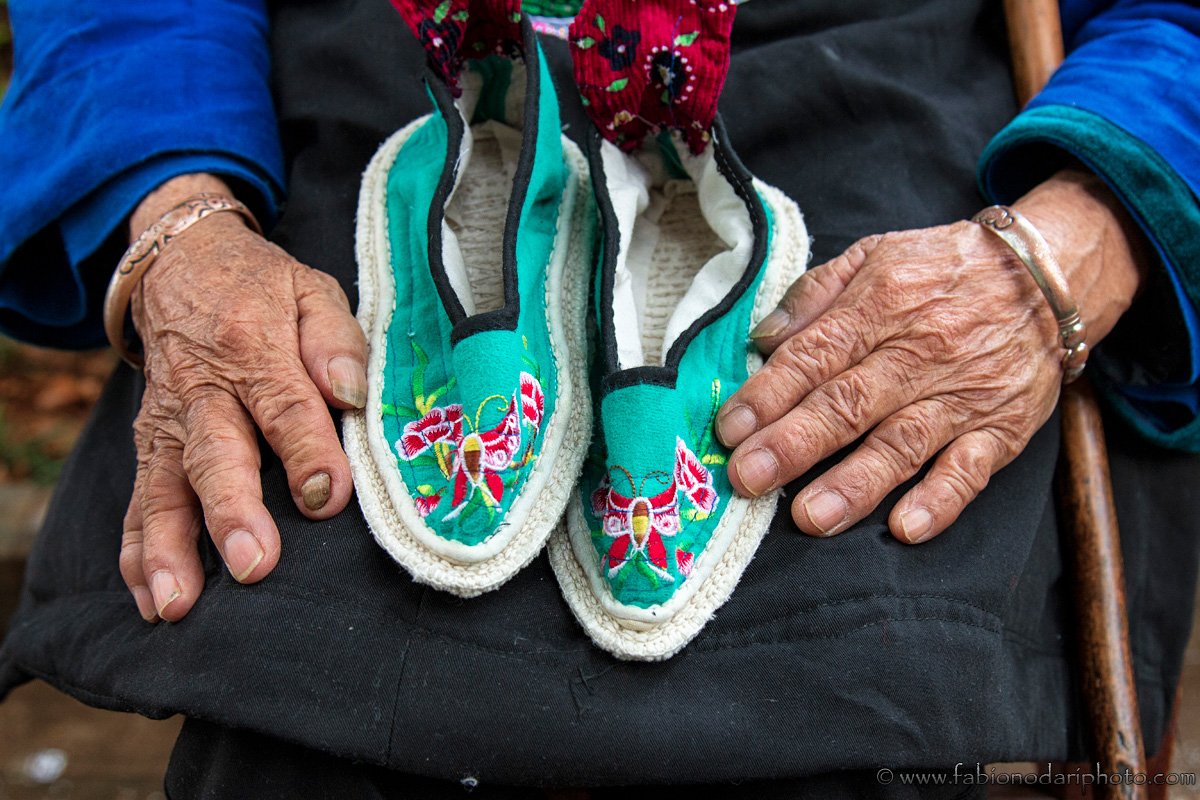
Ying Yue was born in 1935, 23 years after footbinding was officially outlawed in China. Unfortunately, in some remote rural areas, such as Yunnan Province, it continued to be practised until the 1950s. The last new case of footbinding in Cina was reported in 1957.
In 1945, footbinding was finally banned in Qujing (曲靖), where Ying Yue was born, in the same area where Xiu Ying used to live.
Tears drip down Ying Yue’s cheeks while she remembers the pain she endured when she was 10 years old, on her first day working in the fields. Her feet were no longer suited for walking long distances and standing for hours in a rice field. To allow her to work outside, her feet were “unbound”, a practice that tried to undo the damage done to her toes, but that, in reality, traumatized the girls even more.
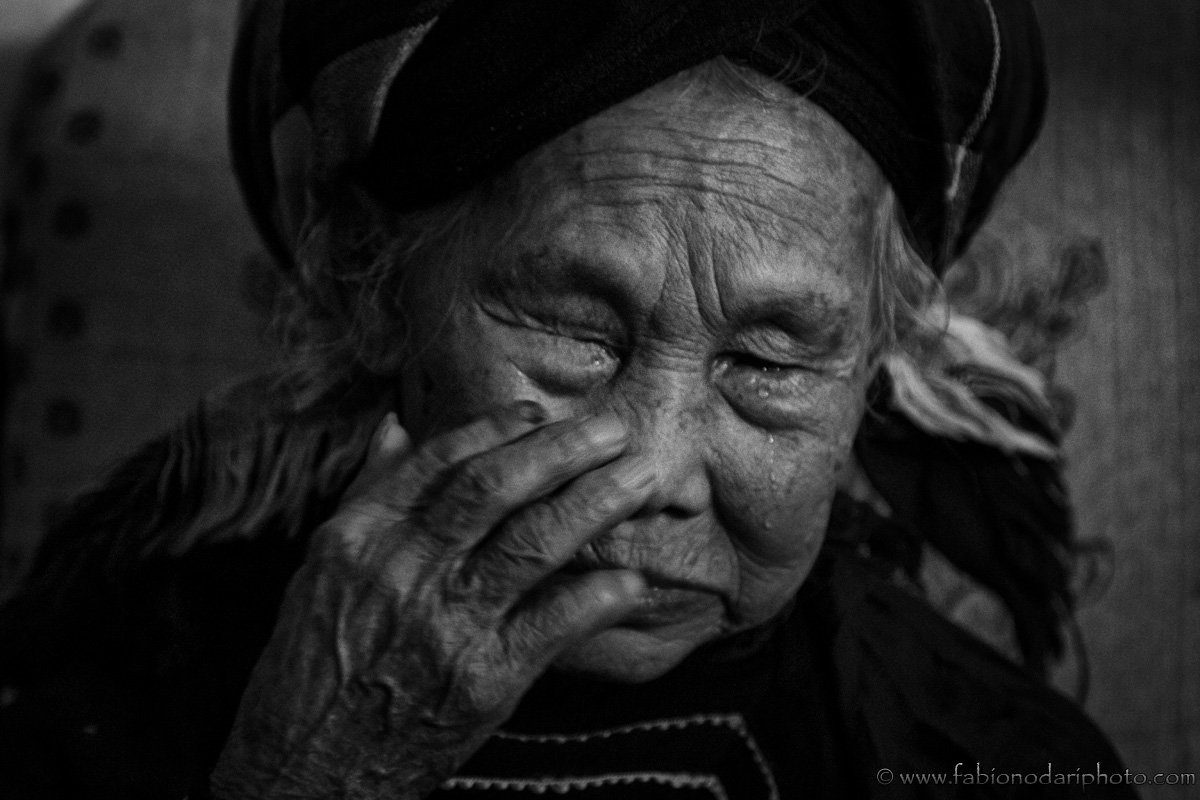
As we talk with Ying Yue, she says something I didn’t expect: “I’m sad that my feet are not as tiny as my mom’s”.
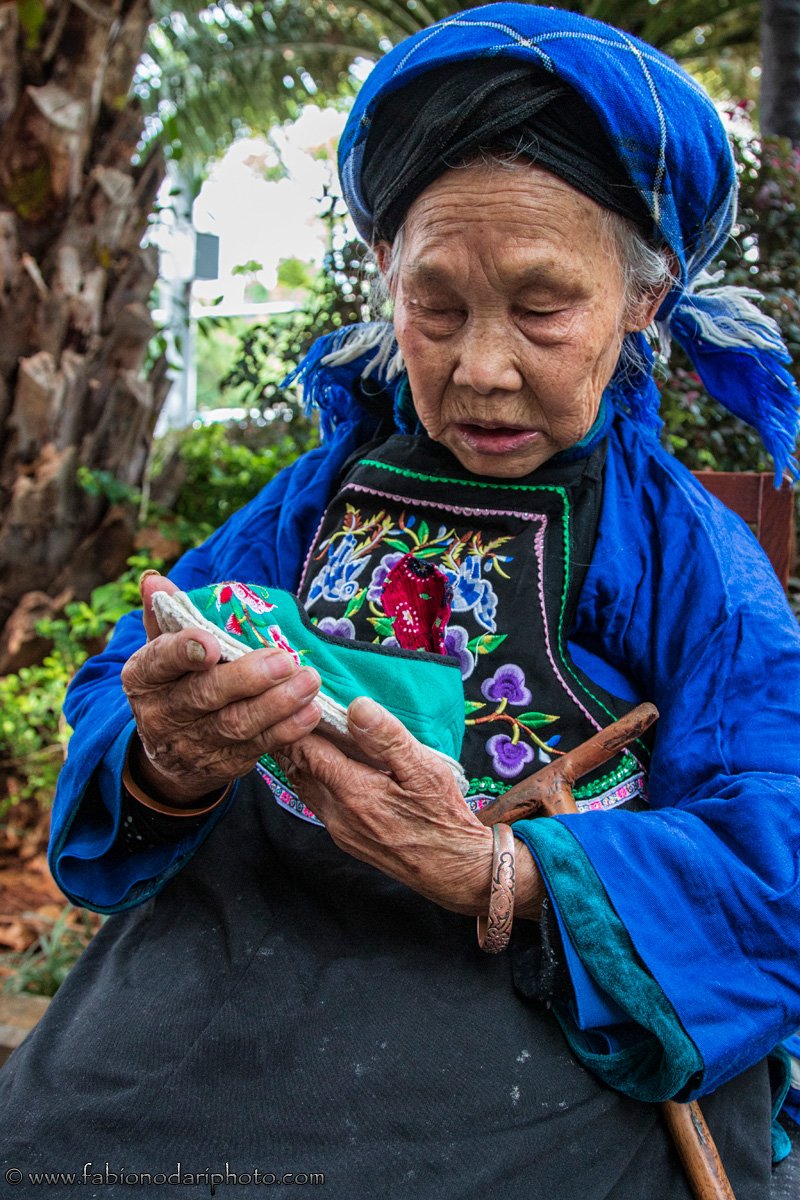
“Bring me the nicer shoes!”, Ying Yue orders her daughter while I take some close-up pictures. She complains that the fabric of the shoes isn’t good and she’s afraid that the pictures might not look good.
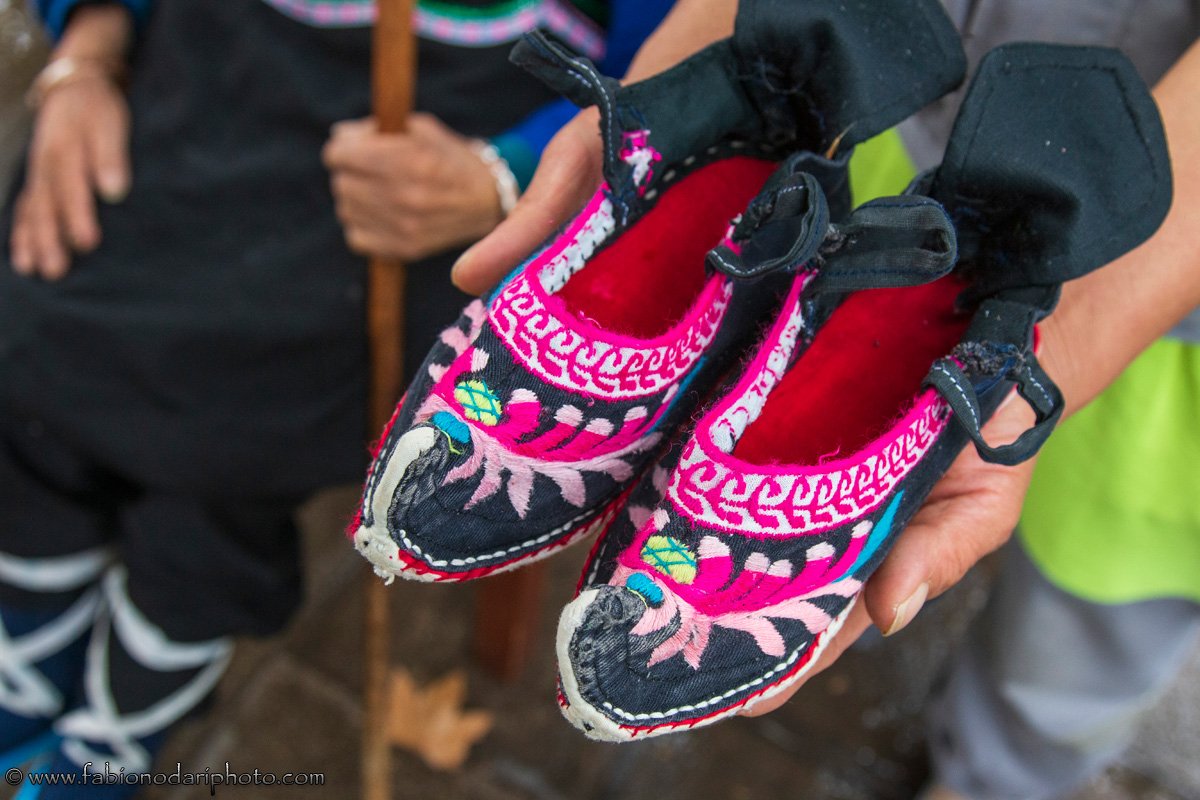
“Much better, but at home, I have another pair that is even nicer; next time, I’ll show it to you”, she tells us with pride. In 1999, the last shoe factory making lotus shoes closed.
Like most people from her generation, Ying Yue has lived a tough life. She was born in one of the poorest places in China, and besides surviving several wars, she lost 5 daughters, 3 sons, and also her husband. When she was 60 years old, she had an accident that permanently damaged her legs, and she also lost sight in one eye. Today, she has only 1 surviving daughter, who takes care of her while working as a janitor in a public toilet.
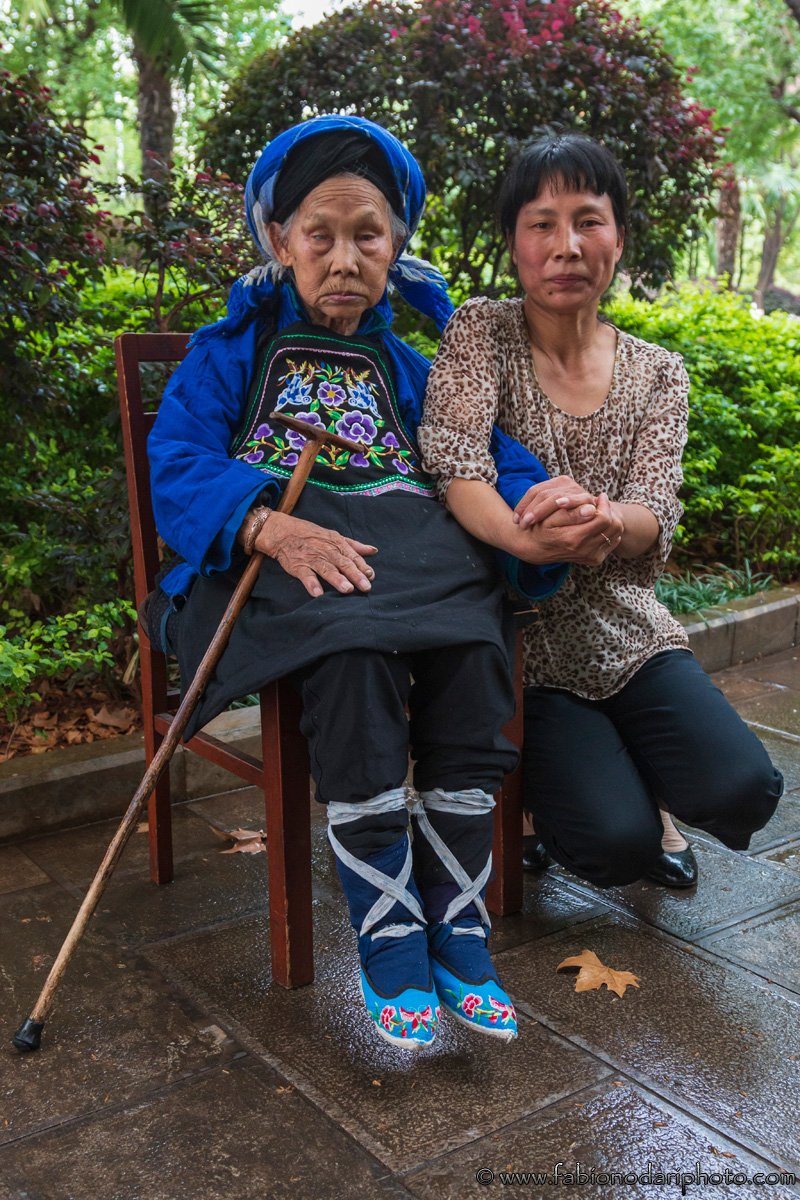
As I tried to ask more questions about what it is like to live with such small feet, she burst again into tears: “I don’t have anything left to live for”. Her daughter tries calming her down, but she is too sad.
Ying Yue doesn’t seem too concerned about having her feet bound when she was young: her main regret is not having a surviving male child. This mentality is still very common in China, especially for those who lived through the years of the one-child policy.
“Did you pay the photographer!?” Ying Yue asks her daughter seriously while we prepare to leave. We try to explain that it is our pleasure to be there, but she doesn’t seem to understand.
We say goodbye to Ying Yue, one of the last women still alive who had their feet bound, a victim of a practice that is fortunately long gone.
Helped by her daughter, she slowly walks away, trying to keep the balance on her “iron feet”. Not too far from us, a young businesswoman passes by driving her new Maserati.
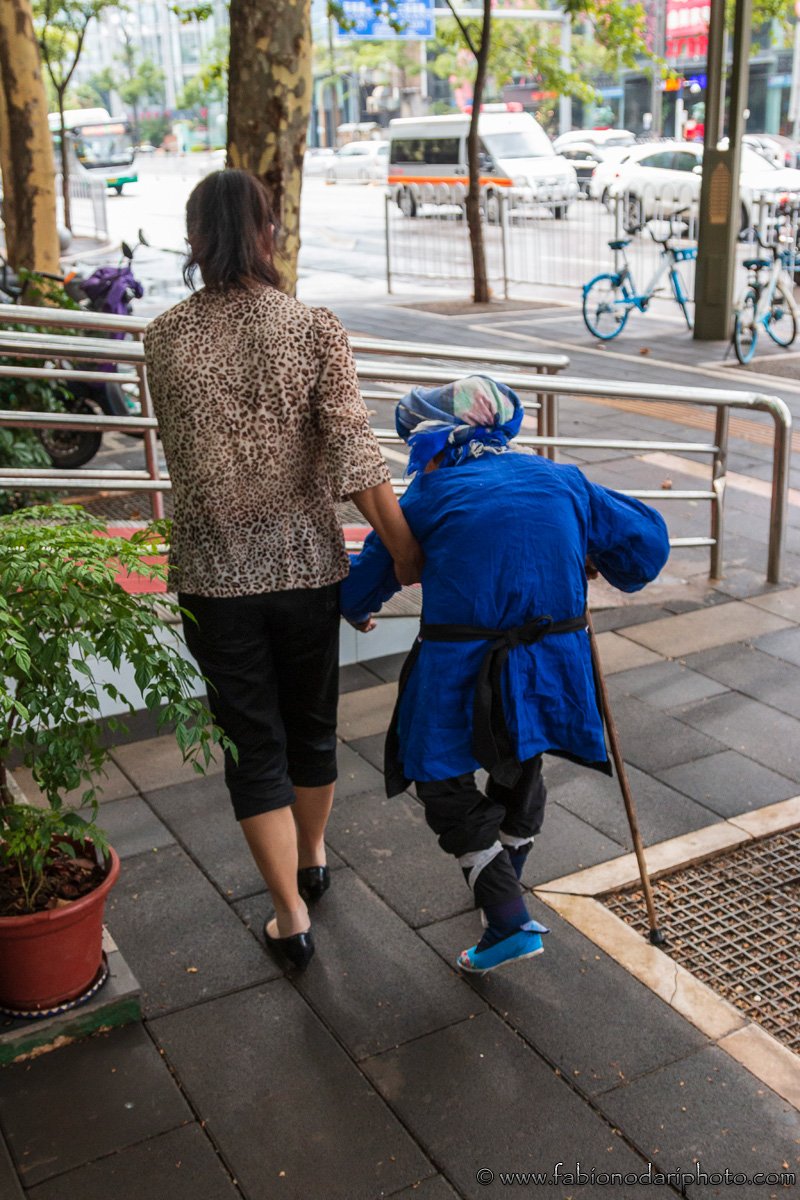
Ying Yue and the other women I photographed prove how much women’s conditions in China have improved over the last decades, even though there is still great gender inequality.
A huge thanks to my friends Jack and Sebastian. Without them, I wouldn’t have been able to tell this story. Thanks also to Pavel Toropov for helping with the editing. Pictures are available on Alamy with an RM license.
Don’t miss this other story where I talk about the last Dulong tattoed women in Yunnan.